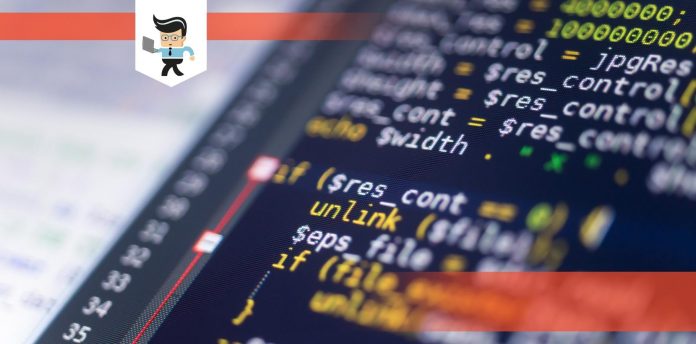A PHP global variable can be of great use to you due to its flexible access. This article will talk about global variables in great detail and especially demonstrate how they can be declared with the help of some explanatory examples. We will extensively cover the methods that will involve the global keyword, $GLOBALS superglobal variable, and the define() function.

In this article, you will find every detail about global variables so that you can clear your doubts about them as well as how to declare them.
Contents
What Is a PHP Global Variable?
A global variable is a special variable that is defined by the users, outside of the relevant function. The users can implement the PHP set global variable mechanism and access these global variables from any point in the block of code; this includes inside as well as outside of that function.
It means that the users can declare global variables just like other variables on the condition that they have to be declared from outside the function.
How To Declare Global Variable in PHP
A global variable can be declared in PHP with the help of a specific method that involves the usage of a keyword. This method will comprise declaring the global scope of that variable. It will be declared to a local scope outside of a function. In this way, the variable will be enabled for usage inside that function.
There is another method as well with which a global variable can be declared in PHP. This method involves the usage of a super global variable. The superglobal variable will enable access to the global variable within a local scope so that it can be declared.
Furthermore, there is another method that involves the define() function so that a global variable can be declared in PHP. With this method, the declared global variable remains constant throughout the implementation. It means that the value of the constant cannot be changed so the users have to be mindful if they utilize this method.
Simple Example
Let’s look at an easy example in which global variables are simply declared and the output is echoed to print the final result of the implementation:
| <?php //decraring global variable $testvar1 = “We “; $testvar2 = “have “; $testvar3 = “a “; $testvar4 = “football match “; $testvar5 = “today”; //printing result here echo $testvar1.$testvar2.$testvar3.$testvar4.$testvar5; ?> |
The Global Keyword
The PHP declare global variable mechanism involves the usage of a keyword which is called global. This global keyword can be utilized for the declaration of a global variable within a local scope. Its utilization involves the setting of the global scope to the local one as a variable. In this way, the variable can be defined outside a function.
Due to the global scope of that variable, the users will not be allowed to access it inside the relevant function. In this case, the users can utilize the global keyword with that variable inside the function. As a result, the variable can be accessed inside that function.
– Example of the Global Keyword
Let’s have a look at an example of the usage of the global keyword to declare a global variable in PHP. In this example, a $sports variable has been created and Football has been assigned to that variable.
After this, a body() function has been created in which the global keyword is used before that $sports variable. Moreover, this $sports variable is printed with the help of an echo statement and a string “is my favorite sport” is concatenated by a “.” (dot) operator.
In addition, the body() function is called outside the function body in which the global scope of that $sports variable is imported to the local scope. In this way, the $sports variable can be accessed inside the function. It is important to note here that the variable cannot be printed without the usage of the global keyword. This is because the local scope of that variable is nonexistent.
Code for this example is:
| <?php $sports = ‘Football’; function body(){ global $sports; echo $sports.” is my favorite sport”; } body(); ?> |
The output for this implementation is “Football is my favorite sport”.
$GLOBALS Superglobal Variable
$GLOBALS is a superglobal variable with which the relevant global PHP variable can be used in the local scope in PHP. This superglobal variable will be involved in the referencing of the global scope variables. As a variable, $GLOBALS is an associative array that possesses the references for those variables that have been defined in the relevant global scope.
The variable can be written inside the brackets of $GLOBALS so that the global variable can be referenced as $GLOBALS[“name”]. As part of the PHP global variable in function mechanism, a local variable, as well as a global variable, can be printed inside a function. The method involves the usage of the $GLOBALS superglobal variable for the referencing of a variable in the global scope inside that function.
– Example of $GLOBALS Superglobal Variable
The following example begins with the creation of a $var variable and the assigning of a string “global scope variable” to it. After that, a body() function is written which is followed by the creation of the same variable $var within the function. However, a different string “local scope variable” will be assigned this time. Then, the $var variable has been echoed with a reference, as $GLOBALS[“var”], within the $GLOBALS array.
With this, the $var variable will be printed with an echo statement. In this example, the $var variable will be printed two times. With the first print, the variable utilizes the $GLOBALS[“var”] array with which the defined global variable is printed outside the function.
The second print of the $var variable will result in the display of the variable inside that function. The output of this implementation is “$var in global scope: global scope variable $var in current scope: local scope variable”.
This is the code for the example illustrated above:
| <?php $var = “global scope variable”; function body() { $var = “local scope variable”; echo ‘$var in global scope: ‘ . $GLOBALS[“var”]; echo ‘$var in current scope: ‘ . $var ; } body(); ?> |
Role of define() Function in Defining Constant Global Variable
There is an important function in PHP that is denoted as define() which can be used to define global variables. There are two parameters that are accepted by this function. The first parameter is the constant name and the value of that constant is the second parameter. It is important to note here that the constant is case insensitive as a default component.
The constant can be accessed from any point in the block of code. The usage of the $ sign is not required while a constant is being defined which will have an immutable value. The number and string can only be held by the constant as the value.
– Example of the define() Function
Let’s look at the following example which highlights the usage of the define() function. In the beginning, a define() function is written and the name of “STUDENT” has been given to the constant. In addition, the value has been named “James” which is followed by the creation of a studentName() function.
After this, the “STUDENT” constant has been displayed with the utilization of the echo statement. Furthermore, the studentName() function is called outside the function. With this, the “James” value is printed as the output of this implementation:
| <?php define(‘STUDENT’, ‘James’); function studentName() { echo STUDENT; } studentName(); ?> |
Conclusion
This article conducted a deep analysis of global variables with a specific focus given on how they can be declared. Here is a walkthrough of the important points that were discussed about global variables in PHP:
- We first took a brief look at the three core methods with which global variables can be declared.
- One of the methods was based on a keyboard whereas the second included the usage of a super global variable and the third method comprised of a function.
- Then we discussed the key aspects of a global variable in PHP and saw a simple example in which a global variable was declared and its output was printed.
- After that, we comprehensively assessed the functioning of the global keyword in declaring a global variable and dissected a relevant example as well.
- Furthermore, there was a detailed account of how the $GLOBALS superglobal variable can declare a global variable. This was accompanied by an example.
- The article also highlighted the role of the define() function in defining a constant global variable and also deconstructed it with an example.
This article holds significance for you due to its systemic approach towards illustrating global variables and highlighting the methods with which they can be declared. So keep coming back for more.







